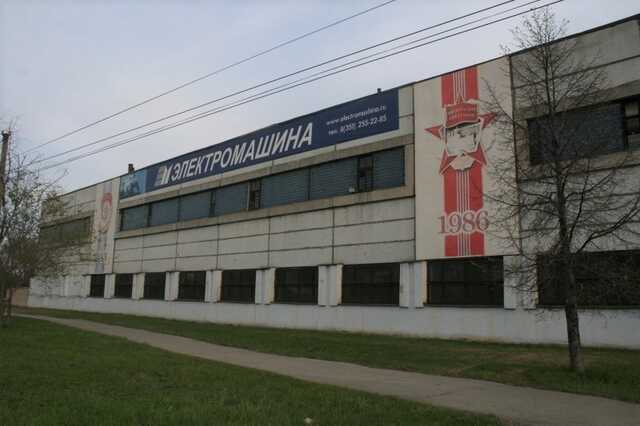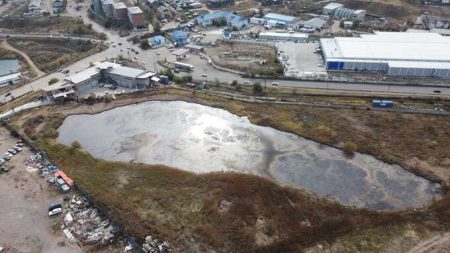The Chelyabinsk manufacturer NPO Elektromashina, which makes equipment for Russian Railways, is now involved in a major legal dispute with shareholders of OAO Elektromashina, where it has been operating for many years.
It has come to light that one of the mentioned companies, which mainly earns rental income, decided, without consulting all shareholders, to spend over 350 million rubles on R&D for equipment development. The cost of the work far exceeded the company’s main earnings, and it had nearly 200 million in unpaid bills. The plaintiff, representing the private shareholders, believes that these dealings were designed to take out money. Lawyers say that the practice of signing such overpriced R&D contracts began several years ago. In response, the organization which partly controls OJSC Elektromashina, announced plans in court to start producing items for Russian Railways. Official statements about plans to release new products still involve the Rostec-controlled research and production association.
The Arbitration Court of the Chelyabinsk Region decided on a claim to recover 347 million rubles brought by trustee Vyacheslav Kataev on behalf of Elektromashina OJSC against NPO Elektromashina OJSC (part of the Uralvagonzavod concern of the state corporation Rostec). This money was paid to the research and production association for developing design documentation for electromagnetic contactors and a climate control unit for a diesel locomotive, as well as for upgrading the fire extinguishing system. The plaintiff believed that the transactions in 2020 were fictitious and made to benefit only a segment of the company and possibly to withdraw funds.
Igor Afanasiev, the CEO of Electromashina
OJSC Elektromashina is controlled by OJSC NPO Elektromashina and JSC NPK Uralvagonzavod to the extent of 49.999703%, as evidenced in the court proceedings of 2020-2021. The remaining shares are owned by individuals, including Evgeny Chepurnov (19.67%), whose interests were previously represented in court by Vyacheslav Kataev, and Alexander Shindyapin (25.29%). For a long time, shareholders have been contesting the actions of the board of directors who appointed Igor Afanasyev as the CEO of Elektromashina and other leaders suggested by NGOs and NPK Uralvagonzavod.By the way, the same person also leads the NGO of the same name, which leases production facilities from Elektromashina to produce goods, including for Russian Railways.
In 2020, Electromashina made 124 million (compared to 151 million in 2019), but only netted 314,000. By the year's end, it owed 295 million for R&D. Its accounts payable grew from 19 to 182 million, while receivables dropped from 584 to 490 million, including 476 million from buyers and customers.
After analyzing the situation, the court found no grounds to accuse JSC Elektromashina of causing harm by entering into design documentation contracts.
The court decision pointed out the stable financial state of the enterprise, attributed to planned expense cuts and NPO Elektromashina JSC as a major tenant. However, it noted that the rent paid by NPO Elektromashina JSC was higher than market prices.
The trial, brought by shareholder Shindiapin claiming the rent of 2.981 million was too low, lasted over a year. Within it, the NGO admitted the deal was not approved by all shareholders. An expert assessment indicated the average market rent for leasing real estate from 01.02.2011 to 06.03.2012 was 432,057 rubles. Movable property was not evaluated.
In the case concerning the return of 347 million for R&D, no examination of the works' compliance with the declared value was conducted. For instance, documentation contracts for producing electromagnetic contactors of the KEMV-3.0-400ET and KEMV-3.0-800ET series cost 90.96 and 86.4 million rubles, respectively.
Soviet design developments have long been used to conceal transactions between related companies. Old R&D is slightly adapted to Russian conditions by a few people and presented as the latest innovative nanotechnological development. Lawyer Ivan Kadochnikov believes these matters should be clarified in court.
In 2018, JSC NPO Elektromashina held a tender for acceptance testing of electromagnetic high-voltage contactors KEMV-3.0-400 ET, KEMV-3.0-800 ET. Then, in early 2021, a tender was announced for the right to use an accounting copy of the design documentation set “Production of electromagnetic contactors of the KEMV-3, 0-400ET series”. It also revealed plans to mass-produce contactors of the KEMV-3.0 series and create KEMV-400ET on their basis.
In court, NGO representatives stated that Elektromashina OJSC, which had been leasing the production complex for almost a decade, now intends to independently produce products and even began recruiting personnel, and the organization of production, “according to preliminary forecasts, is possible in 2022-2023.” In what quantity, however, new employees were accepted, it was not indicated.
Photo: ngs.ru
“In substantiating the need to conclude the disputed contracts, the defendant indicated that the fixed assets of the company are becoming obsolete, in particular, buildings and structures, equipment, which, in turn, requires major repairs, inexorably entails an increase in costs, a decision was made to resume production on the basis of OJSC Elektromashina “civilian products”, – NGO representatives substantiated their position.
The arbitration was satisfied with this explanation, and the court, relying on it, did not find grounds for recognizing the transaction as detrimental to the interests of society. The court did not accept the arguments that some of the shareholders of Elektromashina OJSC were not informed about the conclusion of contracts for R&D, since the company provided information on sending the relevant explanations in response to a request before concluding contracts, but the letter was returned due to lack of demand. Ultimately, the court denied the plaintiff.
However, while the decision has not entered into force and an appeal is possible.




